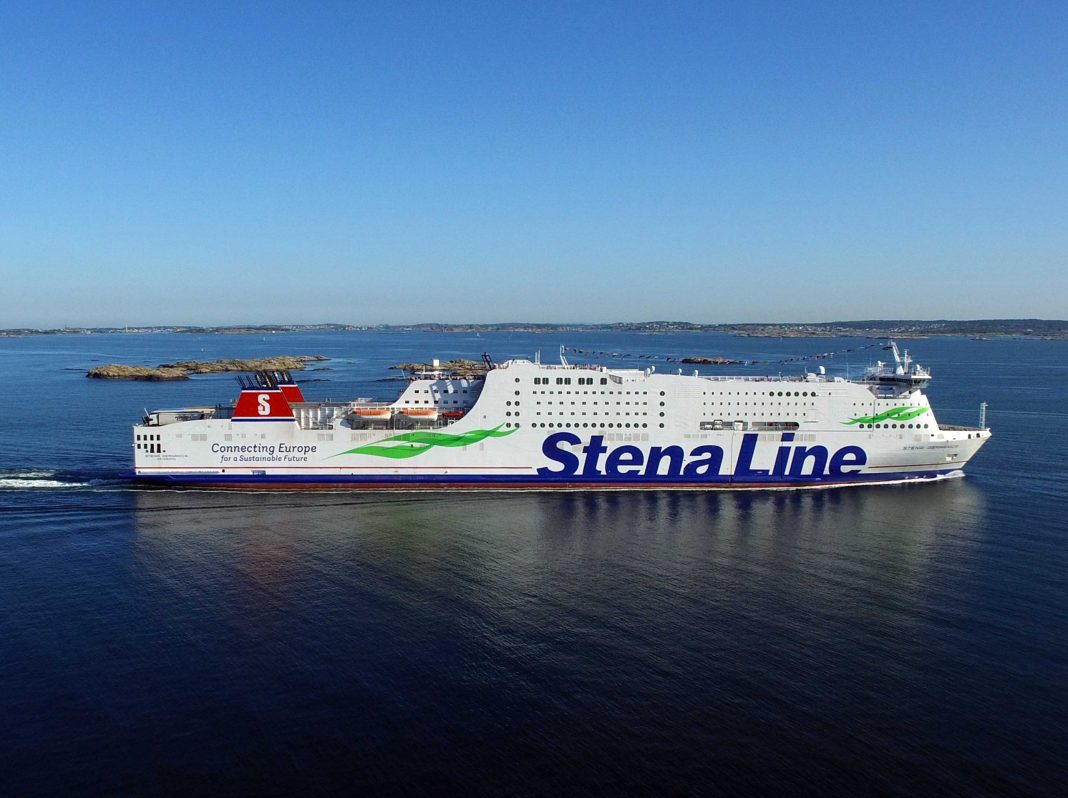Wärtsilä, Stena, and Methanex Corporation marked five years of successful operation of the methanol-fuelled ferry Stena Germanica. She is the first ship in the world to run on methanol as a marine fuel, signifying a major milestone in the continued shift towards a more sustainable future for commercial shipping in line with the industry’s decarbonization efforts.
Stena Germanica was converted to be capable of running on methanol fuel in early 2015 at Remontowa Shipyard in Poland. The 240m ferry, with a capacity for 1,500 passengers and 300 cars, was retrofitted with a first-of-its-kind fuel-flexible Wärtsilä 4-stroke engine that can run on methanol or traditional marine fuels.
The ferry began the world’s first methanol-powered sailings between Gothenburg, Sweden and Kiel, Germany in late-March 2015.
“Being the owner of the world’s first ship with methanol-fuel represented a great step on our journey to become the leader in sustainable shipping, and is an achievement we are very pleased to share as we mark the five-year anniversary of Stena Germanica’s successful operation on methanol,” says Carl-Johan Hagman, Head of Shipping & Ferries at Stena AB. “The project took shape thanks to excellent cooperation between Methanex and Wärtsilä, and many areas within Stena.”
“Stena Germanica’s retrofit is another example of Wärtsilä’s leading position in bringing to the market innovative systems that increase efficiency and support environmental sustainability. The use of methanol as a marine fuel is likely to increase in the future, and high quality, reliable, smart technologies are essential to success,” says Toni Stojcevski, General Manager, Sales & Development, Wärtsilä Marine.
As part of its programme aimed at the enablement of viable sustainable fuels, Wärtsilä is continuing to invest in methanol for marine fuel applications, and further development work and testing procedures are planned.
Starting on 1 January 2020 restrictions on Sulphur oxide (SOx) emissions were launched by the International Maritime Organization (IMO) globally. As a marine fuel, methanol is compliant with the IMO’s 2020 regulations by reducing Sulphur oxides (SOx) by approximately 99 percent, and has the ability to meet Tier III Nitrogen oxide (NOx) regulations without exhaust after-treatment. Methanol is already well positioned globally as a marine fuel, as it is available at more than 88 of the world’s top 100 ports.


